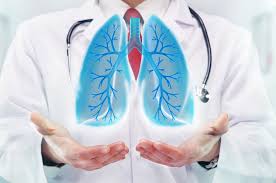
Dr. Sahebrao Toke
Consultant - Pulmonologist
Qualification - DNB Pulmonology FCCP (USA)
Fees
Rs. 1000
Year Of experience
14 years
OPD Schedule
Friday 2.30 to 4 PM
About
Consultant at Pawana Hospital
Pulmonology
Chest and asthma care are two related areas of healthcare that focus on managing respiratory conditions, particularly those that affect the lungs and airways.
Chest and asthma care are two related areas of healthcare that focus on managing respiratory conditions, particularly those that affect the lungs and airways. Here are some key points about chest and asthma care:
Chest care involves the diagnosis, treatment, and management of a range of respiratory conditions, including asthma, chronic obstructive pulmonary disease (COPD), pneumonia, bronchitis, emphysema, and lung cancer. Chest care may involve medication, oxygen therapy, breathing exercises, or in more severe cases, mechanical ventilation.
Asthma care focuses specifically on the diagnosis, treatment, and management of asthma, a chronic respiratory condition characterized by inflammation and narrowing of the airways. Asthma care may involve the use of inhaled medications, such as bronchodilators or corticosteroids, as well as avoidance of triggers, such as allergens or exercise.
Effective chest and asthma care requires close collaboration between patients and healthcare professionals, including primary care physicians, pulmonologists, respiratory therapists, and allergists. Patients with asthma or other respiratory conditions should work closely with their healthcare team to develop an individualized treatment plan that addresses their unique needs and goals.
In addition to medical treatments, lifestyle modifications can also play an important role in chest and asthma care. For example, patients with respiratory conditions may benefit from quitting smoking, maintaining a healthy weight, exercising regularly, and avoiding exposure to environmental irritants, such as air pollution or secondhand smoke.
With proper care and management, many people with respiratory conditions, including asthma, are able to live full and active lives. Regular monitoring and treatment can help reduce symptoms and prevent complications, such as severe asthma attacks or respiratory failure.

